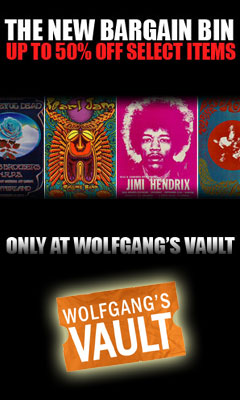|
MUSIC BUSINESS
NASHVILLE AND THE BRITS
GET IT RIGHT
By Mike Iacuessa
The mayor's office in Nashville in May 2009 announced
the formation of a 46-member Music Business Council, which among other things will
assist in creating more venues in the city and get involved in music
education in public schools.
It is somewhat surprising Nashville did not already have that, even in
smaller form, and maybe
even more noteworthy about how rare something like this is. You think
particularly about the poorer cities in this country that could use a boost
in any industry, especially being that economically depressed areas in
general are a breeding ground for artists who have little other options with
their lives.
Well, the British, not unlike health care, are ahead of us on that one. The
same week of the Nashville announcement, the British
government declared it had just opened a new
rehearsal space for bands in Liverpool, home of the Beatles, and planned
to open more facilities inine other cities. The United Kingdom's Culture Secretary, Andy Burnham,
explained they were particularly being located in "deprived areas." "These fully-equipped spaces will make a big difference for young people
who are looking for somewhere to practice, spend time and find an outlet for
their creative skills," he said.
The British, of course, have long subsidized and encouraged the arts. John
Lennon and Paul McCartney met at art school, a social experiment established by
the government. Virtually everyone in the British Invasion of the 1960s came out
of art schools.
On the other hand you have a city like mine, San Francisco, which is
doing little to support its rich rock history, the current mayor generally
supporting policies that drive up the city's cost
of living. Rehearsal spaces have closed all over town, the situation so tight and expensive that
it is more common to have three bands
share the same small room than not.
I live in Haight Ashbury so perhaps I have a front row seat to this
perspective but tourism is the number one industry in San Francisco and the
Haight is the second most popular draw according the city's hotel
and visitors bureau. The music side
of the Haight is its greatest attraction. People want to
see where the Grateful Dead and Janis Joplin lived far more so than the
Hells Angels, the Diggers or where Patty Hearst was once held. John Lennon's signature in the
sidewalk, made in 1968, is still visible here.
Years after the Summer of Love era, the Bay Area overall was a center for the Metallica/Slayer/Megadeth/Testaments
slash metal scene as well as the punk scene of the late 1980s/early 1990s. There are many who believe
strongly that Oakland is the West Coast center for hip hop. There was a time
15 years ago when it seemed everyone you met in the city played some kind of
instrument, even if amateurishly.
The city has the recording studios and plenty of venues,
though they are hard to make money playing in. There are no shortage
of underground music fans. A virtually endless supply of 20-somethings make
the pilgrimage to the city every year, many of whom would seize the moment if
something big happened again. There are many who have been in the city for a
while who have been waiting a long time for it to come around again.
One of the things I want to do with the Independent Music
Foundation is to put together a consulting service to recommend steps a
municipality could take to boost its music scene. Seems that Nashville and the Brits are way ahead of
all of us.
Mike Iacuessa is a music producer and founder of the Independent Music
Foundation.
More Music Articles
| 

